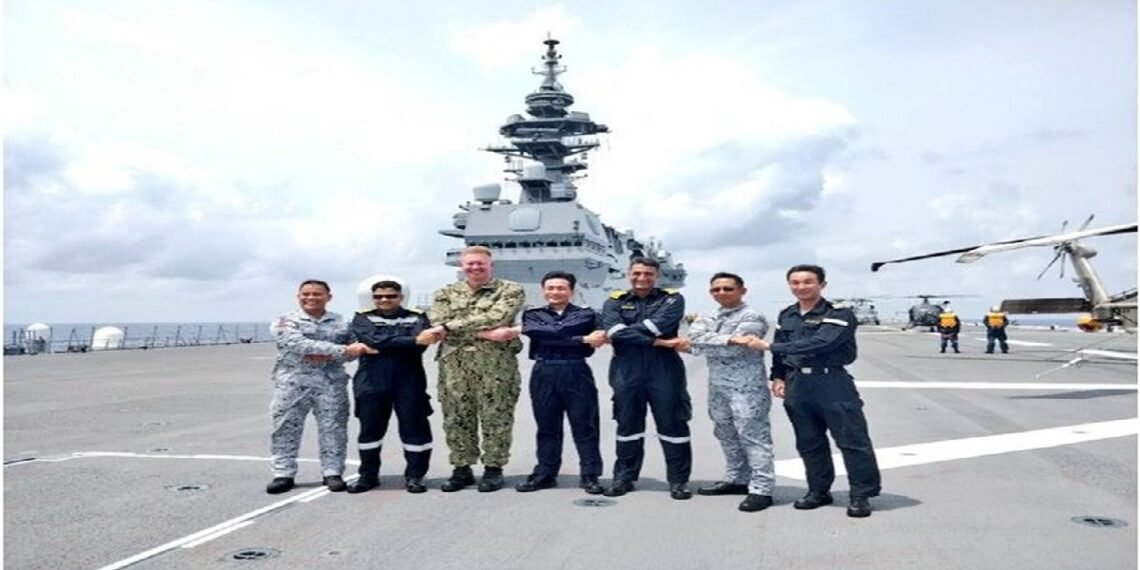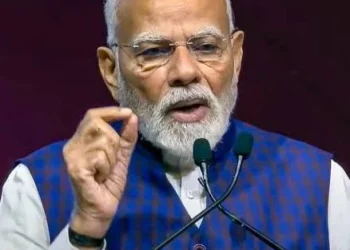India wants to establish itself as a significant arms exporter in the area, and one of its goals is to play a significant role in the Philippines’ military modernization.
As part of the first-ever India-Philippines defense industry seminar, the Indian Embassy in the Philippines sent a business delegation to Manila last week to present its in-country defense platforms and look into possible defense industry collaborations.
Representatives from over 20 Indian defense companies were in attendance, including Mahindra Emirates Vehicle Armouring, Bharat Dynamics Ltd., DCM Shriram Industries Ltd., and Hindustan Aeronautics Ltd.
Re-Horizon 3, a P2-trillion updated military modernization plan, was recently approved by President Marcos and will be carried out over the following ten years.
“We have fighter planes and naval systems.” On the fringes of the defense industry seminar in Taguig City last Friday, Indian Ambassador Shambhu Kumaran stated, “We have a broad range of capabilities on the Indian side—helicopters, attack helicopters, land systems, and artillery systems—and some of those would match with the capabilities you are looking to acquire in the Horizon 3.”
Under a P18.9 billion contract signed in 2022, the Philippines will be the first foreign buyer of supersonic cruise missiles made in India, the BrahMos. Although Kumaran declined to provide an exact timeframe, he stated that the first batch of the missiles is anticipated to be delivered “soon.”
Philippine Aerospace Development Corp tie up w/ Hindustan Aeronautics Ltd to offer Tejas Mk1A to Philippines as a naval strike platform w/ Brahmos NG missile. HAL is said to be willing to undertake partnership for local assembly of Tejas by PADC, and offering Indian soft loans. pic.twitter.com/lW7KvSEH9R
— Max Montero (@MonteroMax) February 19, 2024
Also Read: India’s First Indigineous Spy Satellite Developed By Local Player Set For Launching
Update on Manila-India Defense Cooperation and Loan Offer
Manila has not yet used the $100 million credit line that New Delhi previously extended to help with its defense requirements.
Negotiations broke down after Netanyahu labeled Hamas demands as “delusional.”
We are very much willing to make an offer. We have made it known that we intend to provide a soft loan for defense purchases, which may also apply to projects that lead to the eventual expansion of cooperative industrial activity, according to Kumaran.
We’ll have to wait and see when it comes from the Philippines, he continued, but from what I understand, they are currently working to set up a framework within which they hope to develop this complete self-defense posture program.
India Offers Strategic Defense Partnerships and Affordable Technology Collaboration to the Philippines
According to Kumaran, India could support the Philippines’ endeavors to establish an independent defense strategy. The Department of National Defense has been advocating for a strategy that gives preference to domestic vendors in order to reduce reliance on outside assistance for its defense needs.
“We would like to offer partnerships from India in building that capacity. We recognize that countries like the Philippines, which have broad national security interests, will need to have some domestic industrial capacity. Thus, I believe that this is a very important initiative that looks to the future rather than the here and now, said Kumaran.
India has a track record of successfully developing its own technology, building up its own capabilities, and expanding those into larger industrial capacities. In order to accomplish this in a meaningful way, we are therefore willing to share our experience and our companies are willing to collaborate with pertinent Philippine entities,” he stated.
One advantage that India has over other foreign arms exporters, according to Kumaran, is its affordability.
India’s distinctive selling point is our ability to provide cutting edge technology at affordable costs. He noted, “I would suggest that India is a very good option if you’re looking at a realistic option.”
“Our countries are both peaceful. We won’t tolerate attempts to restrict our access to our resources and territory, but we also don’t yearn for other people’s land or waterways. Thus, we must do more than just talk,” he continued.














